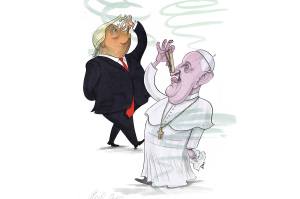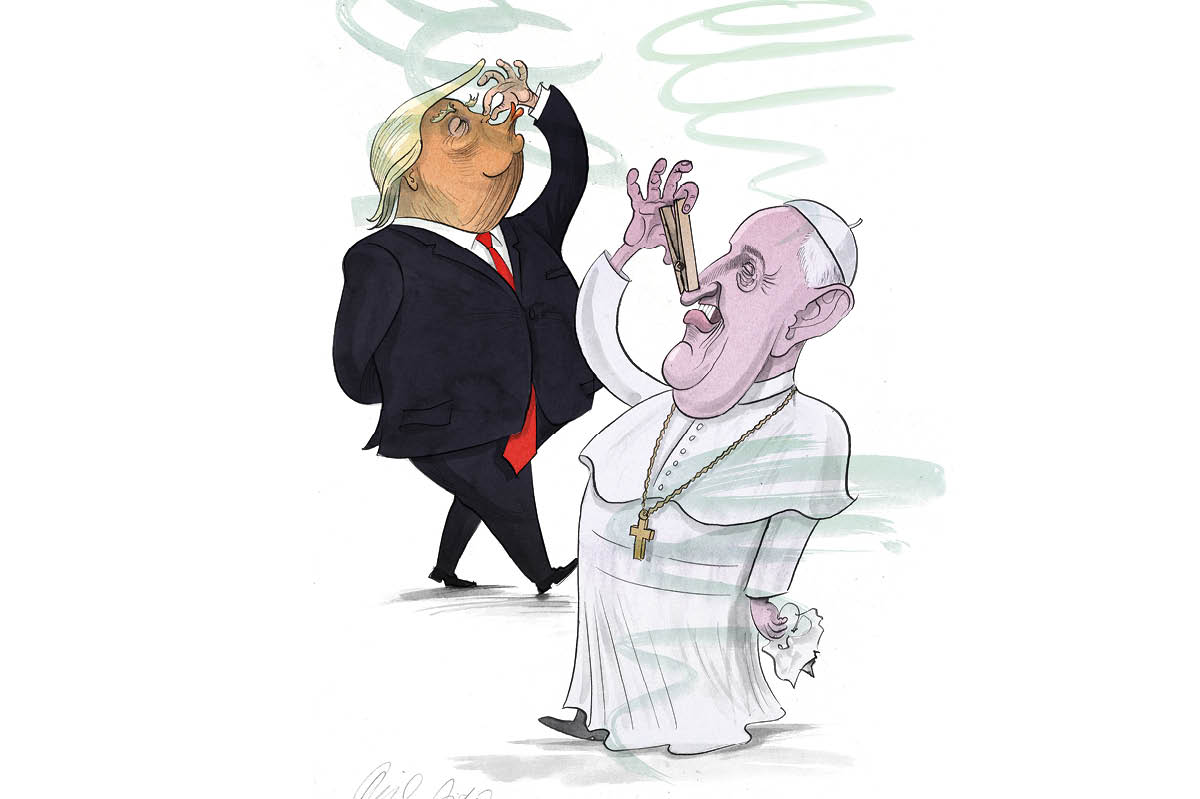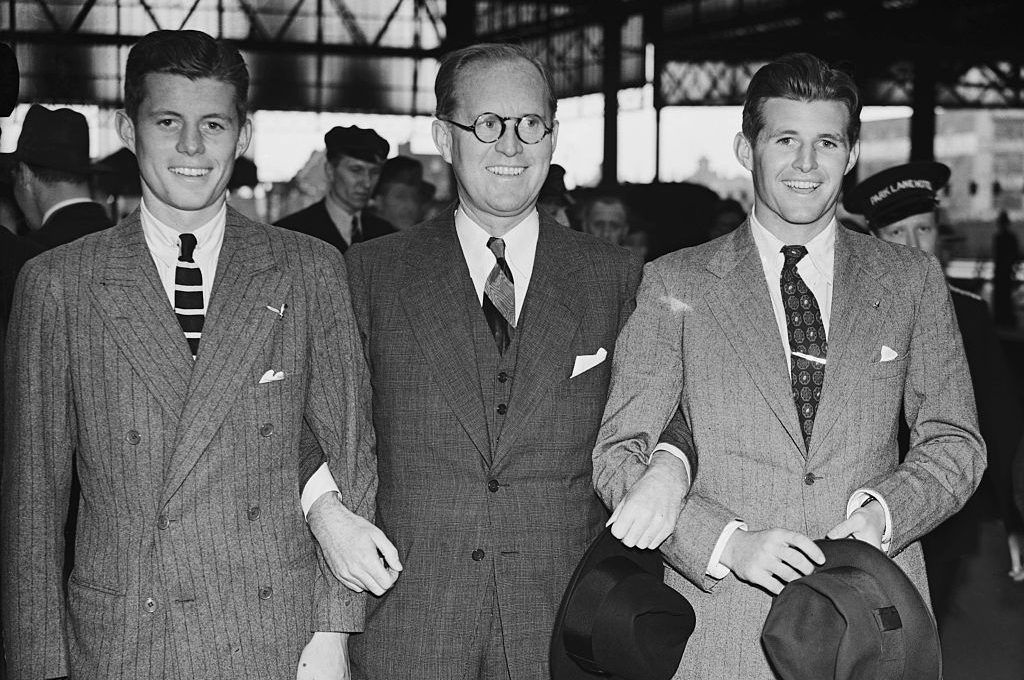As a piss-poor Catholic I am about the last person who should express an opinion of the propriety of President Biden receiving Holy Communion, but as a native of the county whose nineteenth-century women’s college (Ingham University) employed the chancellor whose phrase “rum, Romanism, and rebellion” may have flipped the 1884 presidential election to Grover Cleveland — how’s that for a tenuous connection? — I feel it within my competence to say a word about anti-papism in American politics.
I had a bibulous lunch with Senator Pat Moynihan, my long-ago boss, several months before his death in 2003. Over more Pinot Grigios than I can remember, Moynihan said that he was disturbed by rising anti-Catholicism in the Democratic Party. The silencing of the pro-life Pennsylvania Governor Bob Casey at the 1992 Democratic National Convention “almost made me start voting differently,” he said.
Moynihan had conned over the eclipse of Catholics in the Democratic Party since at least 1961, when he published in the pages of Commentary “Bosses’ and ‘Reformers,’” a rumination on the displacement of Catholic ethnics like Carmine DeSapio, the last Tammany Hall chieftain, by middle-class liberals. As was evident from this trenchant essay, Moynihan’s head was usually with the reformers but his heart was with the party regulars. In that article, Moynihan called Buffalo “a big, ugly, turbulent city.” I asked him if he didn’t worry that such a remark would come back to haunt him at the polls. He looked at me, incredulous, and said, “How many people in Buffalo do you think read Commentary?”
The essay is replete with observations as pertinent today as they were in 1961: “Given their choice, liberals live in Republican neighborhoods and they tend to have virtually no connection with the working class…Politics is a neighborhood business, and liberals are not neighborhood people.”
Moynihan disparaged “the liberal habit of impugning the motives of anyone they disagree with.” And he was prescient in descrying the “general development in Western democracies where mass-based, egalitarian but culturally conservative parties are being taken over by their ‘class enemy’ and don’t know what to make of it.” We needn’t get overly romantic about all this. Carmine DeSapio later went to prison. Urban Catholic pols, faithful attendees at Mass though they may have been, tended to be patronage-obsessed Cold War hawks who either ignored or acquiesced in the destruction of their neighborhoods in the nihilistic orgy of urban renewal and highway construction in the Fifties and Sixties. Blocks, parishes, and organic communities were leveled, and — with only occasional exceptions — Catholic bosses and wardheelers shrugged.
But if only Moynihan had been there in 2017 to hear Senator Dianne Feinstein’s extraordinary reproval of Amy Coney Barrett in confirmation hearings on her nomination to the Seventh Circuit Court of Appeals. “When you read your speeches,” lectured Feinstein, “the conclusion one draws is that the dogma lives loudly within you.”
Moynihan was a loyal party man, so he’d not have metaphorically coldcocked Feinstein, but unlike his former colleague Joe Biden, Moynihan gave freer reign to his heterodox impulses the longer he served. For instance, in July 1991 Moynihan took to the Senate floor to excoriate his fellow Democrats who had voted against the nomination of literary critic Carol Iannone to the advisory council of the National Endowment for the Humanities. Iannone’s rejection by the Senate Labor and Human Resources Committee, the senator said, necessitated his “melancholy acknowledgement of the further intellectual decline of the Democratic Party.”
“I very much fear Professor Iannone’s troubles arose not from the quality of her work but from her genes, social and otherwise,” said Moynihan. “She is an Italian, Catholic ethnic with a working-class background.” A Deplorable avant la lettre!
Moynihan’s imputation of religious bigotry torqued the president of the anti-Iannone American Council of Learned Societies, who in a fit of bluster charged that the Senator had “attacked the integrity of each and every one” of the ACLS’s 300,000 members. The poor chump: this was like heckling a come- dian. Moynihan returned to the Senate floor to carve up the scholar-bureaucrat: “Each and every one of them?” he thundered. “This gets close to newspeak. Evidently, I have offended The People, each and every one of whom will now rise — altogether, now — in righteous wrath. There is a whiff of the totalitarian mode in all this.”
Three decades later, we are choking on that whiff. Men and women of the working class, Catholic or not, are arraigned by progressive yappers for being socially retrograde, and are looked down upon by socially and intellectually insecure professional-class whites. We could use the rum-fueled rebellion of Romanists about now.
This article was originally published in The Spectator’s February 2022 World edition.

























